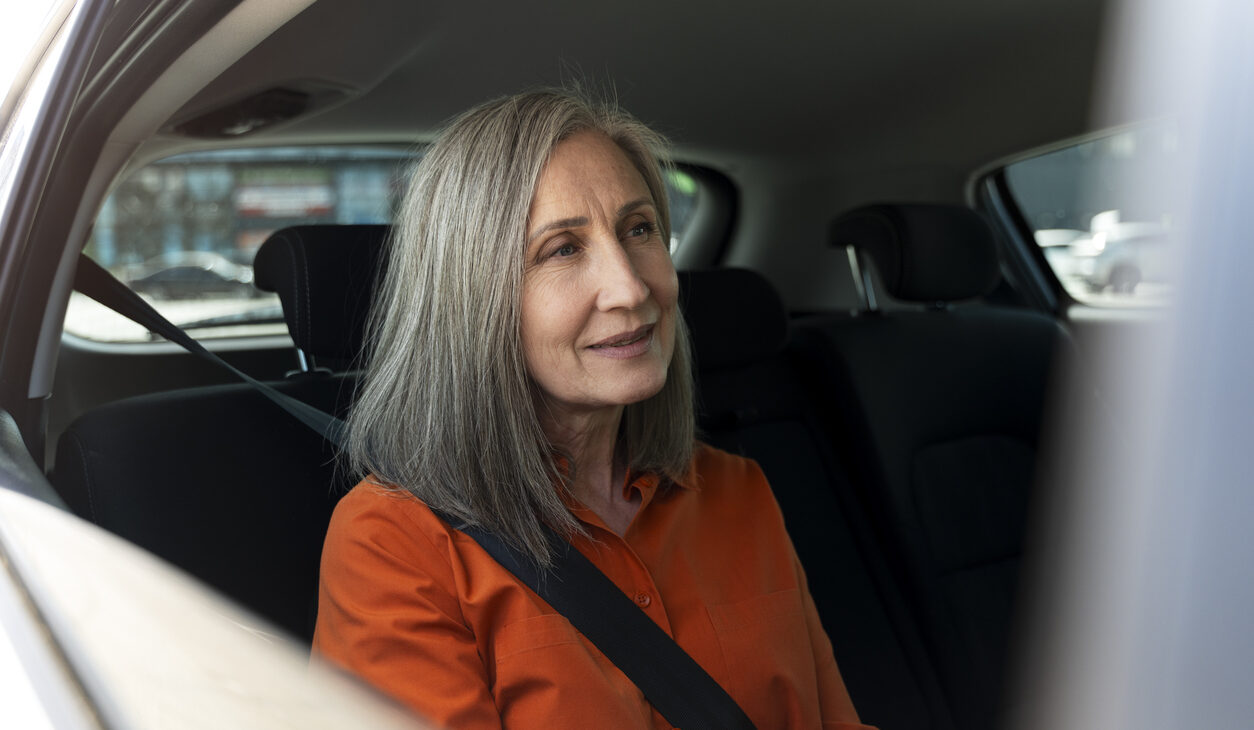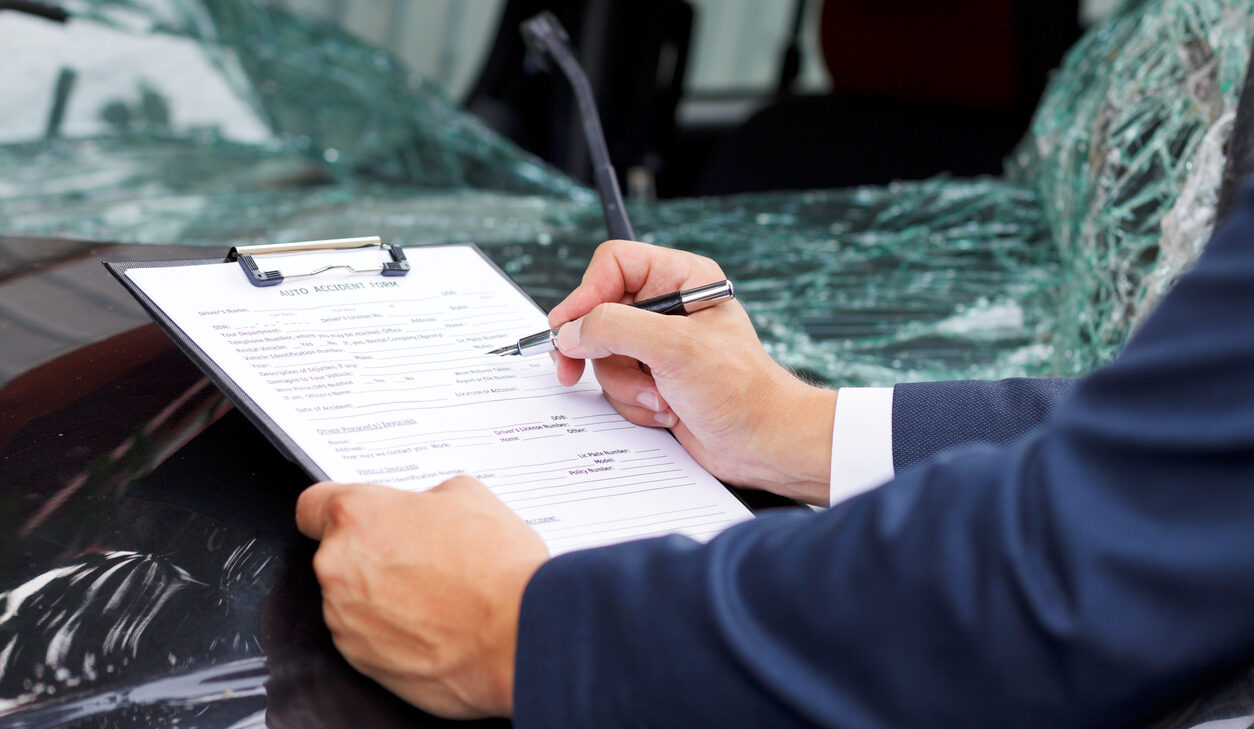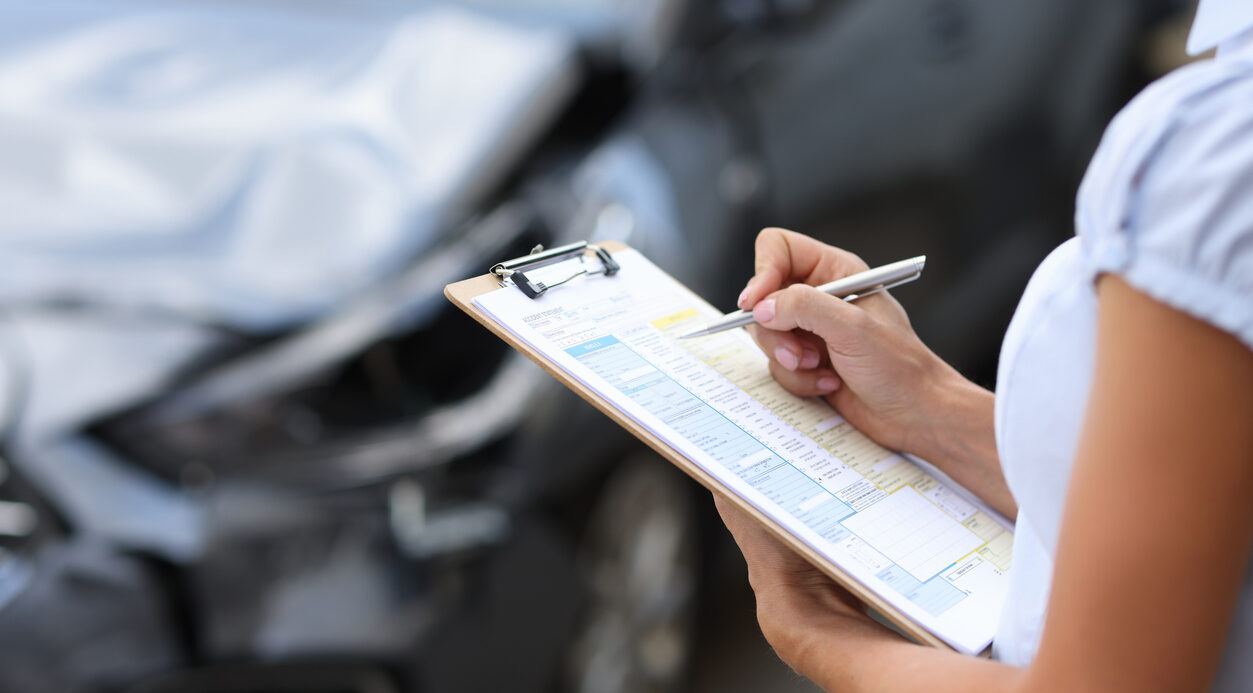Passenger Injury Claims: Your Rights and How to Get Compensation
All registered vehicles in Australia must have Compulsory Third Party (CTP) insurance. This means that if you’re injured while riding in a car, bus or other vehicle, you’re entitled to compensation through a CTP passenger injury claim. You might also hear it called a ‘passenger accident claim’.
Your compensation can cover more than just medical expenses, including ongoing care, future lost income, and the negative impact of the injury on your life. The exact amount you receive depends on how serious your injuries are and whether you’re partly responsible for them.
Keep reading to learn more about passenger injury claims: from your rights in each state, to how to make a claim and what compensation you might be entitled to.
Prefer to speak with a specialist passenger accident lawyer now? Get in touch today. We’ll listen to your story and let you know if you have a claim — completely free of charge.

Can I make a passenger injury claim?
If you’ve been injured while riding as a passenger in a vehicle, you’re generally entitled to make a passenger injury claim. This includes situations where the driver of the vehicle you were in caused the accident.
Common examples of passenger injury claims include:
- Car accident passenger claims (friends and family): if you were a passenger in a vehicle driven by someone you know, whether they or another driver caused the crash.
- Uber and rideshare claims: if you’re injured while riding in an Uber, Ola, DiDi or other rideshare vehicle, even if no other vehicle was involved.
- Bus accident claims: whether the injury was caused by the bus driver (e.g. sudden braking or swerving) or another driver hitting the bus.
- Taxi passenger claims: injuries while travelling in a taxi due to collisions, reckless driving or unsafe stops.
- Motorcycle or scooter passenger claims: if you were injured while riding as a pillion passenger.
Even if you’re unsure who was at fault or how serious your injuries are, it’s always worth getting legal advice. Our expert lawyers can help you understand your rights and how much you could be entitled to.
Start your free online claim check
Find out if you’re eligible for a passenger injury claim today.
What injuries can I claim for as a passenger?
With over 25 years of experience helping injured passengers, we’ve seen firsthand the kinds of injuries that can result from motor accidents. Some of the most common you can claim for include:
This isn’t a complete list, just some of the most common passenger accident injuries you can claim for.
If you’re unsure whether your condition qualifies, call our lawyers for a free consultation. We’ll assess your situation and explain whether you’re eligible for a claim.
How much can I get for a passenger accident claim?
The amount you receive in a passenger injury claim depends on a few key things, like how serious your injuries are, whether you can return to work, and whether you’re partly at fault.
Depending on your situation, your claim may cover:
- Lost wages and reduced future earning capacity.
- Medical, hospital, and rehab expenses (past and future).
- Domestic care and help around the home.
- Reduced life expectancy (in severe cases).
- Pain and suffering (the negative impact of the injury on your life).
Pain and suffering (also known as ‘non-economic loss’) is harder to quantify than things like lost income and medical bills. That’s because it’s based on more subjective things like how much your injury has affected your happiness and quality of life. As a result, you could get a substantial lump sum — but in most states, you’ll need to meet a minimum injury threshold first.
This is usually assessed by an independent medical specialist, who rates your level of permanent impairment. Depending on where you live, this is called WPI (Whole Person Impairment) or ISV (Injury Scale Value) rating. The higher the rating, the larger your compensation — though there are maximum payout caps in each state.
See the table below for the thresholds and payout limits in your state. To learn more, head to our complete guide to pain and suffering compensation after a car accident.
| State | Requirements for claiming non-economic loss | Maximum compensation for non-economic loss |
| NSW | Your injury must be assessed at over 10% WPI. | $654,000 |
| Victoria | You must have either:
• 30% WPI or
• A serious injury certificate from the Transport Accident Commission
| $663,580 |
| Queensland | You must have an ISV of 1 or higher. | $456,950 |
| South Australia | You must have an ISV of 11 or higher. | $405,780 |
| Western Australia | • Your injury must be assessed at over 5% Whole Person Impairment (WPI), and
• Your claim must be worth over $25,500. This amount increases every year with inflation.
| $485,000 |
| Tasmania | Your claim must be worth more than $7,000. This minimum value increases every year due to inflation. | No cap on damages. |
| ACT | No requirements for claiming non-economic loss. | No cap on damages. |
Keep in mind, pain and suffering is just one type of compensation you can get for a car accident passenger claim. Your full payout may also include medical expenses, ongoing treatment, and any income you’ve lost. Depending on your situation, you might actually receive more for things like lost future earning capacity or long-term care needs — especially if your injuries are serious or you were earning a lot before the accident.
What if I’m partly to blame for my injuries?
The value of your passenger accident claim may be reduced if your own actions partly caused your injuries. This is known as ‘contributory negligence’. Common examples include:
- Not wearing a seatbelt.
- Failing to wear a helmet while riding on a bicycle or a motorbike.
- Travelling in an unsafe or unsecured position, such as in the back of a van.
- Getting in a car with a driver you knew was intoxicated.
If any of these apply, it doesn’t automatically mean you can’t claim. However, your passenger car accident compensation may be reduced depending on how much your actions contributed to your injuries.
For example, if you got into a car with a drunk driver and were injured when they rear-ended another car, you can still make a claim. However, the insurer might argue that you were 40% responsible for your injuries.
That’s why it’s so important to have an experienced passenger injury lawyer on your side. We’ll push back with strong evidence to show that your contribution was far less than the insurer claims. In some situations, we can even get your contributory negligence reduced to 0%. That way, you get the maximum compensation possible for your injuries.
What if no one’s at fault for the accident?
In some cases, you might be injured in an accident where no one is legally at fault. These are referred to as ‘blameless accidents’ and can include:
- A driver having a sudden medical episode (e.g. a stroke or seizure).
- A mechanical failure that couldn’t reasonably be foreseen.
- An animal running into the road.
- A collision caused by road conditions or weather.
In these situations, you may still be eligible for a passenger claim. It all depends on your state’s rules:
| State | Can you make a blameless accident claim? |
| NSW, VIC, TAS, ACT, NT | Yes |
| QLD, SA | Yes, but since the CTP system is fault-based, blameless accident claims are more limited. |
| WA | No |
Importantly, some CTP insurance policies provide blameless accident cover — so even if your state doesn’t automatically cover blameless accidents, your policy might allow you to claim compensation.
If you were injured as a passenger in a blameless accident, we’re here to help. Our lawyers have detailed knowledge of the blameless accident scheme in every state and can provide free advice on your rights.
How to claim as a passenger in a car accident
Every car crash passenger claim is slightly different, but yours will likely follow these steps:
Before you start your passenger injury claim, it’s worth speaking with an experienced lawyer. We’ll explain your rights in plain English and assess how strong your claim is, so you know exactly where you stand.
In your free consultation, we’ll also check whether you’re entitled to any extra benefits, like a Total and Permanent Disability (TPD) claim through your super.
To give your passenger accident claim the best chance of success, you’ll need solid evidence showing both how the accident happened and how serious your injuries are. Without this, your claim could be delayed or even rejected.
That’s where we come in. We work with a trusted national network of medical specialists and liability experts to build a strong, evidence-backed case on your behalf. And because we cover all the upfront costs, you won’t pay a cent unless we win.
After collecting the right evidence, we’ll submit your passenger accident claim with the other party’s insurer. If there are other claims you’re entitled to, we’ll handle those for you as well.
You’ll need to attend a compulsory pre-court mediation with the at-fault party’s insurer. Your lawyer will handle the entire negotiation process on your behalf — keeping it as smooth and stress-free as possible while pushing for the best result.
In most cases, our thorough preparation and decades of experience in passenger injury claims mean we can resolve things at mediation. But if the insurer still refuses to make a fair offer, we’re fully prepared to take your case to court and fight for the compensation you deserve.
How long after a passenger accident can I claim?
You’ll need to make your passenger accident claim within a set time limit, which depends on your state:
| State | Time limit to lodge a claim |
| NSW | - Within 28 days: lodge Accident Notification Form for early treatment expenses.
- Within 3 months: lodge a Personal Injury Benefits Claim Form.
- Within 3 years: start a common law damages claim. |
| VIC | - Within 12 months: lodge claim with TAC (Transport Accident Commission).
- You may be able to lodge up to 3 years after the accident with a reasonable excuse. |
| QLD | - Within 9 months of the accident or one month of getting legal advice: lodge a Notice of Accident Claim Form (NOAC).
- Final claim deadline: 3 years from accident date. |
| WA | - Within 1 year: recommended to notify Insurance Commission of WA.
- Legal proceedings must begin within 3 years. |
| SA | - Within 6 months: lodge with CTP insurer.
- 3 years to commence legal proceedings. |
| TAS | - Within 12 months: lodge claim with MAIB (Motor Accidents Insurance Board).
- You may be able to lodge up to 3 years after the accident with a valid excuse. |
| ACT | - Within 13 weeks: lodge Motor Accident Injuries (MAI) claim.
- Up to 3 years to commence court proceedings. |
| NT | - Within 6 months: lodge claim with TIO (Territory Insurance Office).
- You may be able to lodge up to 3 years after the accident with a valid reason. |
If you’ve missed the time limit, don’t worry — you still have options, just get in touch today. Our lawyers can apply for an exception on your behalf, which is a legal excuse for the delay in your claim. We have decades of experience helping injured passengers get their late claims approved, and we’re ready to do the same for you.
Do I need a lawyer for a passenger injury claim?
While you can legally make a passenger injury claim on your own, having an expert on your side can make a huge amount of difference — especially if your claim involves multiple issues, liability disputes, or claims against friends and family.
A specialist passenger accident lawyer fully understands the CTP laws in your state and will ensure your rights are protected at every stage. Here’s what you can expect when you work with us:
- Free claim assessment: we’ll review the accident details and explain your entitlements, free of charge.
- Medical referrals and records: we’ll connect you with experienced doctors who understand passenger injuries and can properly document your condition.
- Comprehensive compensation calculation: from lost earning capacity and future care to pain and suffering, we make sure you get every type of compensation you’re entitled to — not just the obvious ones.
- Dealing with insurers: we’ll handle all negotiations on your behalf, saving you the stress of dealing with insurers. This is especially helpful if your claim involves a friend or family member’s CTP insurer.
- Uncovering extra benefits: we’ll maximise your total compensation by finding all your other entitlements, like a Total and Permanent Disability (TPD) payout through your super.
And with our No Win No Fee guarantee, your passenger injury claim is completely risk-free. We cover all upfront costs — like evidence, expert reports and admin fees — and you won’t pay a cent unless your claim succeeds.
Frequently asked questions
If you’ve been injured as a passenger in a road accident, your health comes first. Get medical treatment as soon as possible, whether at the scene, in hospital, or by visiting your GP.
Once you’re safe and looked after, here are some key steps to help support your compensation claim:
At the scene
- Gather details: if another driver was at fault, make sure you get their name, license number, and CTP insurance details. For bus passenger accident claims, note down the route number, bus number, and the driver’s name and information.
- Collect witness details: if anyone saw the accident, ask for their name and contact info. If possible, get a written or recorded statement, as it could help prove how the accident happened.
- Take photos: use your phone to document the scene, including vehicle damage, skid marks, injuries, traffic signs, and anything else relevant. The more detail, the better.
After the accident
- See your doctor: ask your GP for a medical certificate that lists all your injuries, even minor ones. This helps create a clear record of your condition.
- Report the crash: if the driver hasn’t reported the accident to the police, make sure you do. Get a copy of the police report or the reference number for your records.
- Record your symptoms: keep a detailed written record of all your symptoms following the crash, including how your condition has impacted your work capacity and daily life.
- Keep receipts: make sure to keep receipts from your treatment, prescriptions, travel between medical appointments, professional care, or anything else you’ve had to pay for due to your injury.
- Get legal advice early: speak to a lawyer as soon as possible. In a free consultation, we’ll explain your rights, the types of compensation you may be eligible for, and how to maximise your passenger injury claim.
We understand that many injured passengers hesitate to make a claim because they’re worried about legal costs. But at Monaco, we believe everyone deserves access to justice, no matter their financial situation.
That’s why we offer Australia’s most comprehensive No Win No Fee guarantee. That means we cover every cost for your claim, and you won’t pay a cent unless we secure your compensation. No hidden clauses, no tricky fine print, and no unexpected bills.
Here’s what sets us apart from other law firms:
- No upfront costs: we pay for everything, including expert reports, investigations, and medical assessments, so you’re never out of pocket for your claim.
- True No Win No Fee: other ‘No Win No Fee’ law firms usually only cover their legal fees, leaving you to pay upfront costs, medical reports, or court fees if your claim is unsuccessful. But at Monaco, our guarantee includes every cost related to your claim.
- Capped fees: if we win your claim, our fees are capped at just 30% — significantly lower than the 50% charged by many firms. Plus, in most cases, we recover legal costs from the other side, so you keep more of your payout.
- Clear cost agreements: you’ll receive a full breakdown of costs before we start, so there’s no surprises or sticker shock.
- 60-day risk-free trial: all car accident passenger claims come with a 60-day trial. If you’re not happy with how things are going, you can walk away without paying a thing.
Want a better idea of how much your claim will cost? Get in touch today for a free consultation.
Yes, if you’ve suffered whiplash as a passenger, you may be entitled to compensation. While it’s often seen as a minor injury, whiplash can lead to ongoing pain, limited movement, and time off work. In more serious cases, it can affect your ability to drive, work, or carry out daily activities.
A successful claim can cover your treatment costs, lost income, and even pain and suffering — it all depends on how severe your whiplash is and how it impacts your life.
If you’re experiencing headaches, neck pain, stiffness, pain, or arm numbness after an accident, you could have whiplash. No matter how minor your symptoms, make sure to see a doctor immediately. Not only does this ensure you get the treatment you need, but GP records are also crucial for your future passenger whiplash claim.
If you were injured while riding in a car driven by a friend or family member, it’s completely understandable to feel hesitant about making a claim. But the important thing to remember is that your loved one won’t be personally out of pocket. When you make a passenger claim against a driver, your compensation is paid by their Compulsory Third Party (CTP) insurer — not the driver themselves.
Here’s a breakdown of the key types of evidence you may need for a passenger injury claim, whether you were in a car, bus, Uber, taxi, or any other vehicle:
- Police report or event number (if reported).
- Crash report lodged with the relevant state authority (e.g. Transport Accident Commission in VIC, CTP Insurer in NSW).
- Photos of the accident scene, vehicles, injuries, road conditions, or signage.
- Dashcam or CCTV footage (if available).
- Witness statements.
- Driver details of all vehicles involved.
- Uber ride receipt (if you’re making an Uber accident claim).
- Public transport incident report (if you were injured on a bus, train or tram).
- Initial medical records and ongoing treatment notes.
- Scans and test results (e.g. X-rays, MRIs, ultrasounds).
- Personal statement documenting symptoms, impact on daily life, and mental health effects.
- Work capacity certificates from your doctor outlining time off or how your duties have been modified.
- Payslips, tax returns, or employer statements to show income before and after the accident.
- Out-of-pocket expenses related to your injury, like medical bills, travel between medical appointments, domestic help, and home modifications.
The earlier you collect this evidence, the stronger your claim will be. However, you don’t have to do this alone — our expert lawyers are here to help. We know exactly what’s needed to prove a car accident passenger claim and can gather evidence on your behalf.
Even if the at-fault driver fled the scene, had no insurance, or was driving an unregistered vehicle, you can still claim compensation as a passenger in a car accident.
In these situations, your claim is made through your state’s nominal defendant scheme. This is a government-backed safety net that steps in when there’s no CTP insurer available to pay your claim.
This scheme ensures you’re not left out of pocket just because the driver broke the law or couldn’t be identified. It covers the same entitlements as a regular claim, including:
- Medical treatment and rehabilitation.
- Lost income.
- Pain and suffering (where eligible).
- Future care and support.
However, nominal defendant claims are complex and time-sensitive. Each state has its own strict deadlines and requirements, and even a small mistake can get your claim denied.
That’s why it’s crucial to speak to a lawyer with experience handling passenger injury claims through the nominal defendant. We’ll manage the entire process for you, build a strong case with supporting evidence, and make sure no key deadlines are missed — so you can focus on your recovery while we fight for the compensation you deserve.



